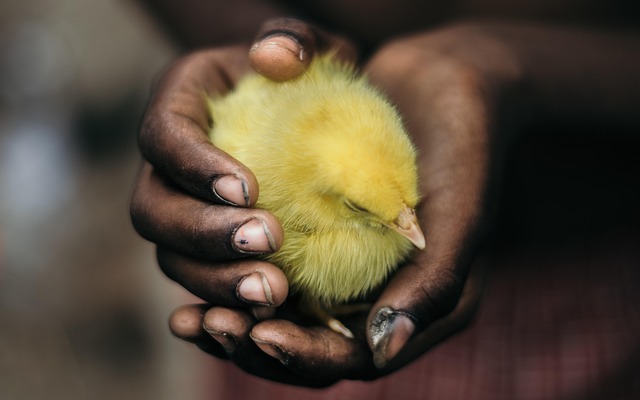Nurturing Empathy Across Ages: Young Minds Psychology Unveiled
Young minds psychology highlights that empathy development begins around 2-3 years old, evolving significantly with age. Early scenarios like playdates and family discussions deepen empathetic abilities, contributing to psychological growth. Ado…….

Young minds psychology highlights that empathy development begins around 2-3 years old, evolving significantly with age. Early scenarios like playdates and family discussions deepen empathetic abilities, contributing to psychological growth. Adolescents incorporate social norms and personal values into their responses, while adults gain a deep understanding of diverse perspectives. Tailored approaches, such as role-playing and storytelling, foster empathy at different developmental stages. Measuring empathy in young minds overcomes challenges through innovative assessment methods, combining qualitative and quantitative data. Nurturing empathy involves storytelling, active listening, perspective-taking, and acts of kindness, shaping compassionate global citizens.
“Unraveling the complex interplay between empathy and age in young minds is a fascinating journey into the heart of human connection. This article explores the multifaceted development of empathy, delving into its psychological underpinnings across different age groups. We examine how empathy evolves from early childhood to adolescence, shedding light on age-specific responses. Furthermore, it provides practical strategies for fostering empathy and navigates the challenges in measuring these young minds’ empathetic capabilities. Discover the power of empathy in shaping interpersonal relationships and learn how to nurture it at every stage.”
- The Development of Empathy in Young Minds
- Understanding the Psychology Behind Age-Specific Empathetic Responses
- Fostering Empathy Across Different Age Groups
- Challenges and Opportunities in Measuring Empathetic Young Minds
- Practical Strategies for Nurturing Empathy in Every Age
The Development of Empathy in Young Minds
The development of empathy in young minds is a fascinating journey that begins at an early age. Children are born with a natural inclination to be sensitive to others’ emotions, but empathy develops and matures over time through various experiences and interactions. Young minds psychology highlights that around 2-3 years old, kids start to recognize and label emotions, demonstrating a growing awareness of their own and others’ feelings. This early stage lays the foundation for developing empathetic abilities.
As children grow, their capacity for empathy deepens. They learn to take another person’s perspective, understand complex social cues, and respond with compassion. Playdates, school interactions, and family discussions often foster these skills. By witnessing and practicing empathy in different scenarios, young minds cultivate a deeper sense of connection and understanding, contributing to their overall psychological development and ability to care for others across various ages.
Understanding the Psychology Behind Age-Specific Empathetic Responses
The way young minds perceive and respond to empathy shifts as they age, driven by psychological development. Children often begin with a basic capacity for emotional understanding, reflecting their growing awareness of others’ feelings. This early empathy is often instinctual and situation-driven, focusing on immediate needs like comfort or pleasure. As young minds psychology evolves, however, empathy becomes more nuanced. Adolescents start to consider social norms and personal values, leading to more complex empathetic responses that take into account context and potential consequences. This maturation continues into adulthood, where experienced individuals can demonstrate a deep understanding of diverse perspectives and subtle emotional nuances.
Understanding these age-specific empathetic responses is crucial in fostering healthy relationships and effective communication across generations. Recognizing how empathy develops allows us to create environments that nurture this essential skill, from supportive childhood interactions to empathetic adult roles models. By aligning with the unique psychological stage of each individual, we can enhance connections, promote understanding, and build a more compassionate society.
Fostering Empathy Across Different Age Groups
Empathy is a skill that can be nurtured and developed at any age, making it a key focus for young minds psychology. Across different age groups, fostering empathy involves tailored approaches to cater to unique developmental stages. For younger children, teaching empathy often centers around role-playing scenarios and storytelling, where they learn to recognize emotions in others and respond appropriately. This early exposure lays the foundation for building strong social connections later in life.
As individuals mature, especially during adolescence, young minds psychology shifts towards encouraging active listening and perspective-taking. Adolescents can benefit from discussions about diverse cultural experiences and personal narratives, helping them understand the complexity of human emotions and perspectives beyond their own. This period is crucial for developing empathy as they navigate their evolving identities and relationships with peers.
Challenges and Opportunities in Measuring Empathetic Young Minds
Measuring empathetic young minds presents a unique set of challenges. Traditional assessment methods often struggle to capture the nuances of empathy, especially in younger individuals who are still developing their emotional intelligence. Self-report measures can be unreliable as children may not fully understand or articulate their emotions accurately. Moreover, observational assessments might overlook individual differences in expression styles, leading to potential biases.
However, these challenges also open up opportunities for innovative approaches. Researchers can employ dynamic assessment methods that observe children in natural settings, interacting with peers and caregivers. This allows for a more holistic understanding of empathy in action. Additionally, combining qualitative and quantitative techniques, such as interviews alongside behavioral tasks, can provide richer data and deeper insights into the complex nature of young minds’ empathetic abilities.
Practical Strategies for Nurturing Empathy in Every Age
Nurturing empathy in young minds is a multifaceted process that can have profound effects on individuals and society as a whole. From an early age, children begin to understand and respond to others’ emotions, laying the foundation for their empathetic abilities. Practical strategies for fostering empathy include reading stories with emotional themes, encouraging role-playing scenarios where kids take turns being different characters, and engaging in open conversations about feelings and experiences. These activities help children develop emotional intelligence—a key component of empathy.
As they grow older, young minds can benefit from learning about diverse perspectives through exposure to various cultures, backgrounds, and viewpoints. Encouraging active listening during conversations and teaching the art of perspective-taking further enhances their ability to empathize. In addition, promoting acts of kindness and community service not only reinforces empathetic behavior but also instills a sense of social responsibility. Young minds psychology emphasizes that these strategies, when consistently applied, can help shape empathetic young adults equipped to navigate an increasingly interconnected world with compassion and understanding.
The development of empathy in young minds is a fascinating journey that transcends age groups. By understanding the unique psychology behind empathetic responses at various stages, we can foster caring and compassionate individuals who are equipped to connect with others across different ages. Through practical strategies and navigating the challenges of measurement, it’s evident that nurturing empathy in every age group is not only possible but crucial for creating a more empathetic society. The field of young minds psychology plays a pivotal role in harnessing this powerful trait, ensuring its longevity and impact on interpersonal relationships.







